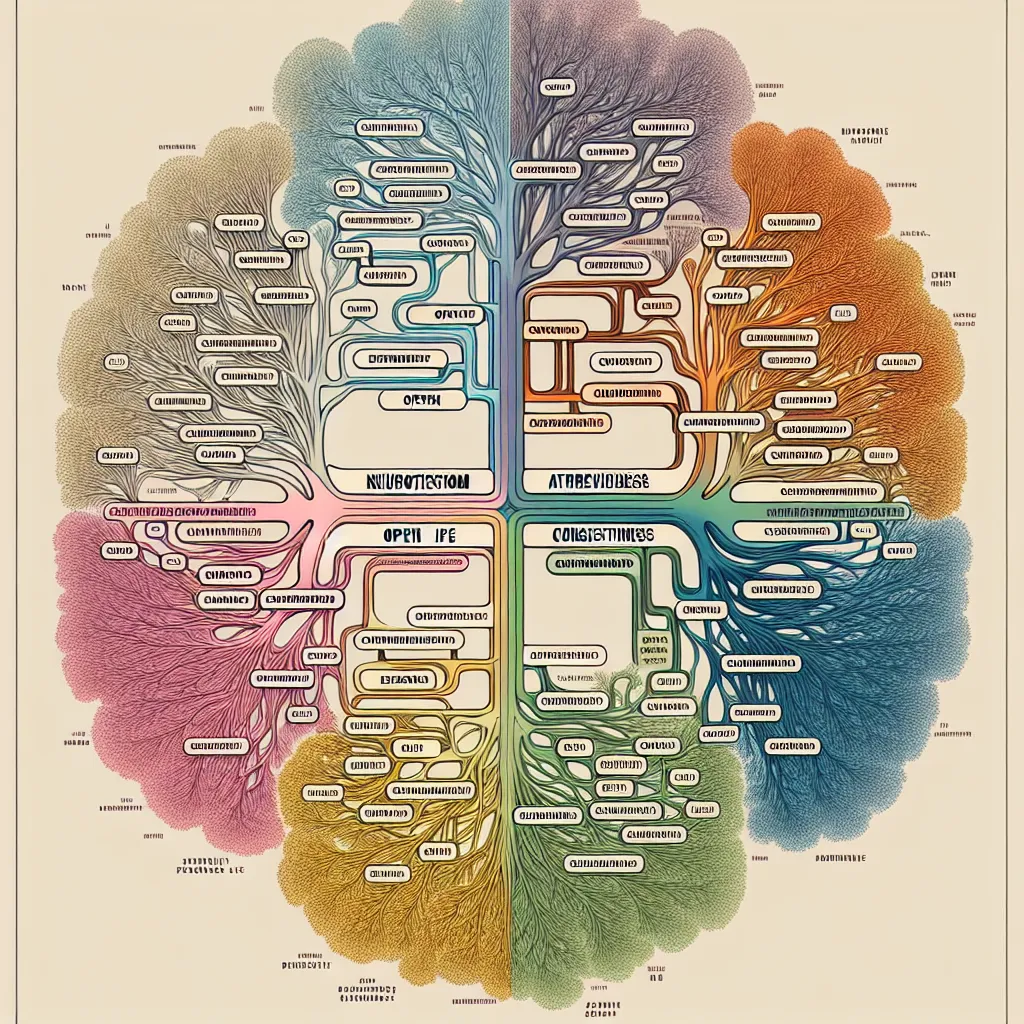Gordon Allport’s Unique Approach to Personality Traits
Understanding the complexities of human personality has been a quest for psychologists for over a century. One prominent figure in the study of personality is Gordon Allport, an American psychologist who is often hailed for his groundbreaking work in psychology. Allport’s unique approach to personality traits has shaped the field of personality psychology and continues to influence research and practice today.
Gordon Allport was born in Montezuma, Indiana, in 1897. He pursued his degree at Harvard University, where he was eventually influenced by the teachings of William James, a renowned philosopher, and psychologist. Allport earned his Ph.D. in psychology and subsequently embarked on a career that would lead to significant contributions to the understanding of personality.
Allport’s interest in the study of personality was sparked by his encounter with Sigmund Freud. Although he respected Freud’s work, Allport felt that the psychoanalytic approach focused too much on the unconscious and on the past. He believed that to fully understand an individual, one must consider their present behaviors and conscious motives. This perspective led him to develop a theory that emphasized the uniqueness of the individual and the importance of the conscious experience.
One of Allport’s most significant contributions is the concept of “trait” theory. He defined traits as the building blocks of personality – stable and enduring characteristics that influence an individual’s behavior across different situations. According to Allport, these traits are born from the individual’s biological constitution and their life experiences. He identified three types of traits: cardinal traits, central traits, and secondary traits.
Cardinal traits are those that dominate an individual’s entire persona, often to the point that the person becomes known specifically for these traits. They are rare as not everyone has a trait that dominates their entire personality. Central traits, on the other hand, are significant characteristics that define how we behave in most situations. Secondary traits are less consistent and more dependent on the situation, often influencing our behavior in fewer situations.
Allport’s trait theory stood out because he focused on the positive aspects of personality. He was keenly interested in understanding the normal, healthy personality, which contrasted with the trend of the time that was mostly concerned with psychopathology. Allport believed that personality traits could lead to a healthy, productive, and fulfilling life.
Moreover, Allport emphasized the concept of “functional autonomy.” He argued that even if a behavior originated from a past experience or a basic drive, the behavior could become independent of its origin. For example, a person might take up painting because of a school requirement (past experience) or for the need for self-expression (basic drive), but over time, painting could become a passionate endeavor, distinct and autonomous from its initial reason.
Allport also made a unique distinction between individual and common traits. Individual traits are unique to the person, while common traits are shared among people within a culture or group. By recognizing this distinction, he acknowledged the importance of the social and cultural context in shaping personality.
Another significant concept introduced by Allport is the “proprium,” which refers to aspects of a person that they recognize as fundamental to their identity. He suggested that the proprium develops over time, through childhood and into adulthood, and becomes the core of one’s sense of self.
Gordon Allport’s approach to studying the human personality was also noted for its rigorous methodology. He advocated for a combination of idiographic and nomothetic approaches: the idiographic method focuses on the individual, using case studies and self-reports to understand the unique intricacies of a person’s personality, whereas the nomothetic method looks for general laws and employs statistical techniques to study personality across different individuals.
Allport’s legacy is evident through the Gordon Allport Prize, awarded for research in the field of personality psychology that contributes profoundly to the human understanding of personality. He has also left behind a vast body of work, including his influential books “Personality: A Psychological Interpretation” and “The Nature of Prejudice,” which remain important texts in psychology education.
Gordon Allport’s approach to personality traits brought a fresh perspective to the psychological study of individual differences. His emphasis on the present, the conscious, and the unique individual helped shift the focus of personality research. Allport’s belief in the positive potential of personality traits encourages us to consider how we can harness our characteristics to lead fulfilling lives.
Today, personality psychology continues to evolve, and researchers build upon Allport’s foundations. The understanding and classification of personality traits have advanced with models like the Big Five, which categorizes traits into five broad dimensions: openness, conscientiousness, extraversion, agreeableness, and neuroticism. However, the essence of Allport’s work—that personality traits are the keys to understanding human behavior—remains influential.
In practice, Allport’s theories have applications in various fields such as clinical psychology, counseling, education, and organizational behavior. For instance, understanding individual traits can help therapists tailor their approach to each client, educators recognize the unique potentials of each student, and employers create work environments that optimize employee satisfaction and performance.
Gordon Allport’s unique approach to personality traits has stood the test of time. His legacy lives on as we continue to explore the intricate web of characteristics that make up the human personality. In a world that often seeks to categorize and predict behavior, Allport’s perspective reminds us that each person is an individual tapestry woven from a unique set of traits and experiences. His work empowers us to look beyond the surface and appreciate the depth and richness of human personality.



Leave a Comment